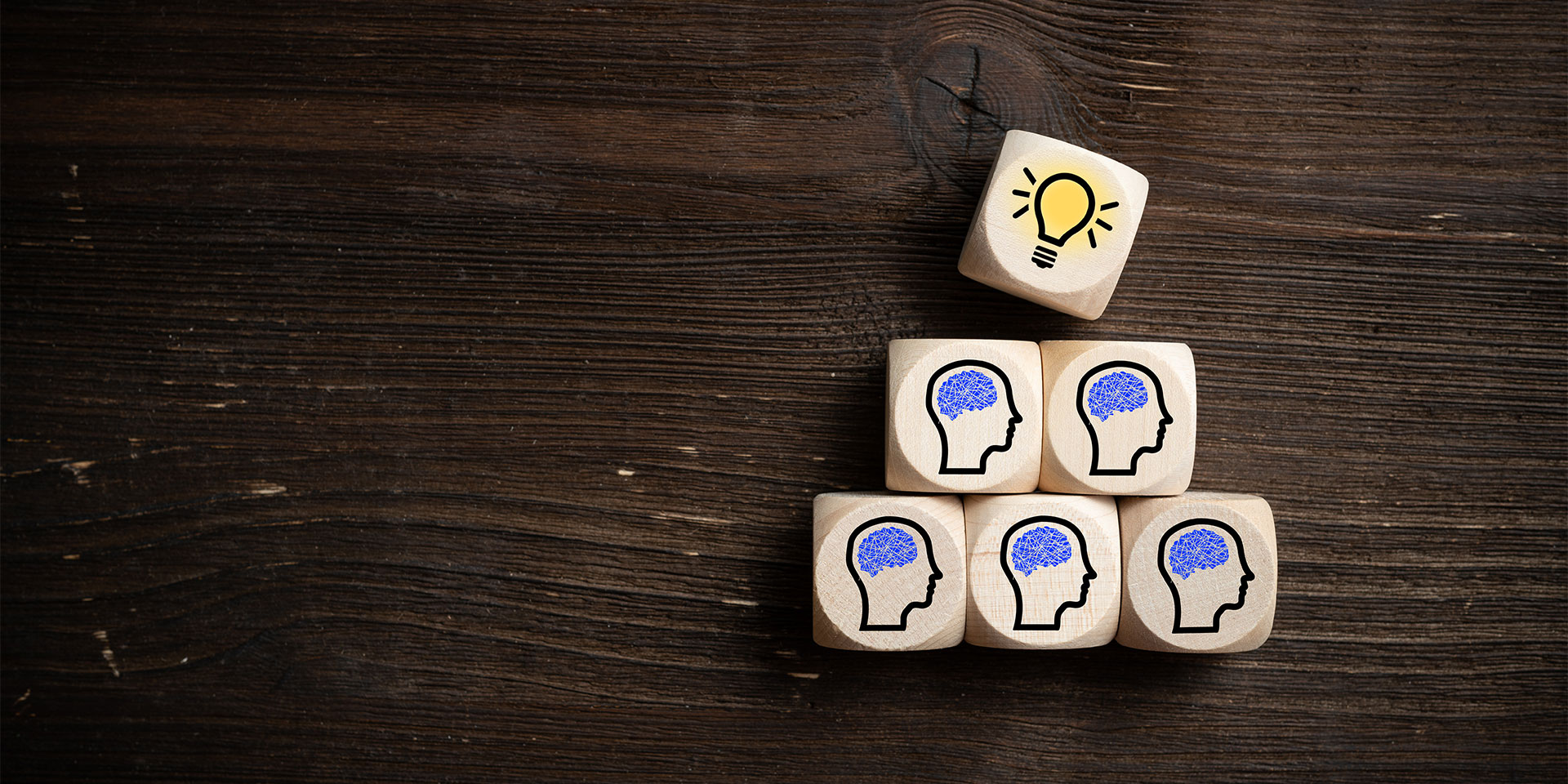It happens to all of us. We misplace the keys, forget a phone number or where we put our reading glasses. With age, such things happen more often, whether we like it or not. The good news is, our brain continues to produce new cells regardless of our age. Therefore, it is possible to have a good memory despite the aging process.
The quality of our memory depends not only on our genetics, but also on our lifestyle, which either refines or degrades our cognitive abilities. It depends on what we eat and drink, the quality and duration of our sleep, the way we spend our free time, and the healthy functioning of our interpersonal relations.
The adult brain’s neuroplasticity—that is, the ability to modify its internal state under the influence of external stimuli—allows for the formation of new neuronal connections and the improvement of pre-existing ones. These processes, however, do not occur by themselves. Maintaining a sharp mind, the capacity for continuous learning and memory stimulation require certain conditions to go from a wish to a reality.
Brain training
The more often we train our brain, the more capable of processing information and remembering it easily we will be. What kind of activities help with this? Experts recommend taking up any kind of activity that goes beyond the ”easy” and the ”comfortable”. Watching a TV show, playing a monotonous computer game, and other similar occupations are not considered to be a strong and effective training.
To really stimulate the brain, an activity must introduce something new and unfamiliar, require our whole attention and a consistent mental effort, have several degrees of difficulty, and, last but not least, reach a point of satisfaction.
Foreign languages, sports games, logic and insight games, volunteering, and manual labour are part of the category of activities that fuel the learning process. A study involving 4,715 participants, published in 2015, shows that going through an online brain stimulation program, at least five times a week, improves short term memory, working memory, and the ability to focus.
Physical exercise
It’s not just the mind as a ”depository” of acquired knowledge that must be trained, but also our bodies. Numerous studies prove have proven that physical exercise increases the secretion of neuroprotective proteins and sustains neuronal development.
According to research conducted in 2012 at the University of British Columbia, weight training improves memory and executive brain functions, responsible for solving problems and decision-making.
The positive effect of physical exercise is observed regardless of one’s age. Another study, based on an analysis of 144 people between the ages of 19 and 93 proves that a minimum of 15 minutes of daily use of a device like a stationary bike increases cognitive performance.
Sugar consumption
Aside from the fact that it favours the appearance of certain health problems like diabetes, cardiovascular disease and obesity, sugar also speeds up cognitive decline.
Research conducted at the Medical School of Boston University says that the effects on brain function are worrying among consumers of sweet drinks, such as carbonated beverages. The results of the study suggest that sugar weakens memory and reduces brain volume, especially in the hippocampus area, the “centre” of short-term memory. The study concluded that the habit of drinking 1-2 glasses of juice per day was associated with over 5 years of brain aging.
Another study that looked at the link between highly sweetened beverage consumption and health status shows that people who drink at least one artificially sweetened juice a day are three times more likely to develop dementia or have a stroke.
A lack of sleep
The required number of sleeping hours for an adult is somewhere between 7 and 9 hours per night. This recommendation is ignored by a significant portion of the population, who ignore the consequences of a lack of sleep.
Sleep plays a vital role in the process of settling information in our long term memory so that it can be accessed in the long run. Both the quality and the duration of a night’s rest contributes to the strengthening of procedural memory (responsible for reproducing acquired abilities, like tying one’s shoelaces, or riding a bike) and declarative memory (responsible for remembering facts, events, or information we come across repeatedly).
A study published in 2012 analysed the answers given to a series of questions for memory evaluation by 40 children aged between 10 and 14 years old. Out of these, 20 went over the material that was going to be tested the night before, while the other 20 were instructed and examined on the same day, without benefitting from the sleep advantage between the two stages of the research.
It comes as no surprise that the group that slept before taking the test performed 20% better than the second group. In the same note, a study focusing on the activity of nurses underlined the fact that employees who work night shifts do worse in memory tests (up to 68%), compared to employees who work during the day.
Vitamin D
Although the causal relationship between vitamin D deficiency and the weakening of one’s memory has not been proven directly, there is still a connection between the two, established based on the effects that this deficiency has on the increased risk of dementia.
In a study that monitored 318 seniors over the course of 5 years, it was found that people with low levels of vitamin D in their blood were more likely to lose cognitive abilities, compared to people with normal levels.
On the other hand, while the increase of vitamin D concentration in the body can improve memory and learning, an excess of it can slow down reaction speed. The correlation was validated among the overweight and obese elderly, according to a study conducted at Rutgers University, New Jersey and published in the Journals of Gerontology: Series A.
Superfoods
When it comes to protecting our grey matter, some foods can be our best allies in combating forgetfulness.
Antioxidants from blueberries, for instance, improve communication between nerve cells. Turmeric helps with the development of new cells. Broccoli contains vitamin K, which improves memory in the elderly. Pumpkin seeds are a rich source of magnesium, iron, copper and zinc, essential nutrients for brain health. Nuts prevent the emergence of neurodegenerative diseases, and vitamin C in oranges, bell peppers, tomatoes, kiwi, and strawberries maintains cerebral strength during the aging process.
Friends and gratitude
A life lived with joy and gratitude, alongside loved ones, brings numerous health benefits. Close relationships are of great value for physical and emotional wellbeing but also for maintaining one’s cognitive capacity.
In a recent study conducted by the Harvard School of Public Health, researchers discovered that people who enjoy an active social life have the lowest rate of memory decline.
Sharing our thoughts and emotions, expressing empathy, and negotiating to reach a mutually beneficial solution is the best and most intense form of brain training.
A joyful heart
Humour is medicine for the soul, like it is often said, but it also sharpens the mind.
A cheerful mood chases away stress hormones (epinephrine and cortisol) and activates the reward system, increasing the likelihood that the human brain will accept new elements that stimulate it. Moreover, exposure to humorous scenes makes us cleverer. Studies show that watching a comedy show improves cognitive test results.
What we do matters
In an age where information is everywhere, it’s easy to feel overwhelmed or even overcome by the multitude of novelties in a deeply limited experience. This is why we must always be one step ahead of the factors that prevent us from functioning at maximum capacity. There are habits we can cultivate daily to delay cognitive decline or the stunted development of our learning abilities.
However, as the writer John Ruskin said, “What we think or what we know or what we believe is in the end of little consequence. The only thing of consequence is what we do”.
Genia Ruscu has a master’s degree in counselling in the field of social work.


















